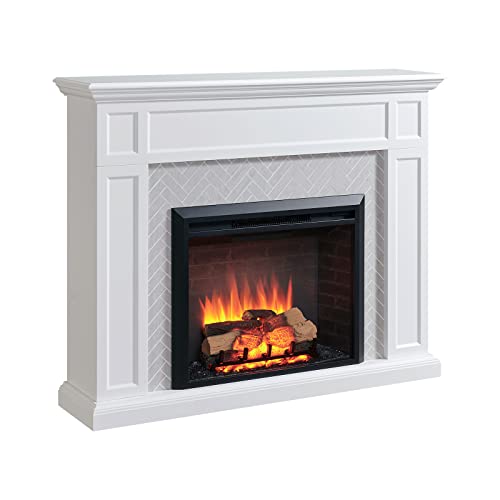Multi Fuel Stoves for Sale: A Comprehensive Guide
Multi fuel stoves have acquired increasing popularity over the years due to their adaptability, efficiency, and aesthetic appeal. Buy Fireplaces can burn different kinds of fuel, such as wood, coal, and biomass, permitting house owners to choose the most cost-effective and environmentally-friendly alternative based on their needs. This post intends to supply an extensive summary of multi fuel stoves, their benefits, considerations for getting, various types readily available, and responses to regularly asked questions.
The Benefits of Multi Fuel Stoves
Multi fuel stoves use a variety of advantages for homeowners aiming to optimize their heating options. Some of the key advantages consist of:
- Versatility: The capability to utilize different fuels allows house owners to adjust to altering scenarios, such as changing fuel costs or schedule.
- Cost-effectiveness: Depending on regional fuel prices, users might find cost savings by burning less expensive fuels like wood or coal.
- Environmental Impact: Many multi fuel stoves produce lower emissions than traditional heating unit, especially when utilizing sustainably sourced biomass.
- Aesthetic Appeal: Multi fuel stoves include a touch of warmth and beauty to any living area, producing a relaxing atmosphere.
- Efficiency: Modern multi fuel stoves are designed to maximize combustion and heat output, supplying an efficient heating solution for homes.
Types of Multi Fuel Stoves
When thinking about a multi fuel stove, it's crucial to understand the various types available on the marketplace. Below are some typical categories:
| Type | Description | Common Fuel Sources |
|---|---|---|
| Wood Burning Stoves | Particularly designed for burning wood logs and pellets. | Logs, wood pellets |
| Coal Stoves | Stoves enhanced for burning coal, providing high heat output. | Anthracite, bituminous coal |
| Pellet Stoves | Use compressed pellets made from wood or biomass, efficient burning. | Wood pellets, biomass pellets |
| Mix Stoves | Efficient in burning both wood and coal, providing versatility. | Wood, coal |
| Biofuel Stoves | Developed to burn liquid biofuels, promoting sustainability. | Bioethanol, biodiesel |
Factors to consider for Purchasing a Multi Fuel Stove
Before investing in a multi fuel stove, there are a number of elements to take into consideration to ensure the selected design meets heating needs and preferences. Here are some important considerations:
- Size and Capacity: Evaluate the heating requirements for the space and select a stove with the appropriate output. This is generally measured in kilowatts (kW).
- Efficiency Ratings: Look for stoves with high efficiency ratings, which represents much better fuel utilization and decreased emissions.
- Product and Build Quality: Opt for stoves made from resilient materials such as cast iron or top-quality steel that can endure heats.
- Price: The budget plays a significant role in decision-making. Think about both the upfront cost and continuous fuel costs.
- Setup: Some designs may need expert setup or particular flue systems. Inspect local guidelines and codes for compliance.
- Looks: Consider the style and surface to ensure it complements your home decoration.
Frequently Asked Questions About Multi Fuel Stoves
1. Can I utilize any kind of fuel in a multi fuel range?
Multi fuel stoves are developed to use specific types of fuels. Always describe the maker's guidelines to know which fuels work.
2. How do I preserve my multi fuel stove?
Routine maintenance includes cleaning the flue pipe, looking for blockages, and inspecting seals and gaskets. Following the manufacturer's maintenance schedule is important for security and efficiency.
3. Are multi fuel stoves safe to use?
Yes, when appropriately installed and maintained, multi fuel stoves can be a safe heating option. It is vital to follow security policies and standards for installation.
4. Do I require a chimney for a multi fuel stove?
Yes, the majority of multi fuel stoves need a chimney or flue system to vent smoke and gases outside the home. Make sure that the system is installed according to local building codes.
5. What is the typical life expectancy of a multi fuel stove?
With appropriate maintenance, a durable multi fuel stove can last anywhere from 15 to 25 years, depending on use and care.
Multi fuel stoves use a versatile and efficient heating service for homeowners, allowing them to choose their preferred fuel type based upon expense and schedule. By thinking about the various types of stoves, their benefits, and aspects to think about when acquiring, people can make informed choices that will enhance their home's comfort. With a large array of alternatives available, possible purchasers should do thorough research study, considering the stove's efficiency, fuel compatibility, and general style to find the best suitable for their requirements.
In conclusion, while multi fuel stoves can look like a big financial investment, their flexibility and efficiency make them a beneficial addition to any home. Whether it's for supplemental heating or as the primary source of heat, a multi fuel stove provides a practical option for the modern homeowner aiming to balance convenience with sustainability.

